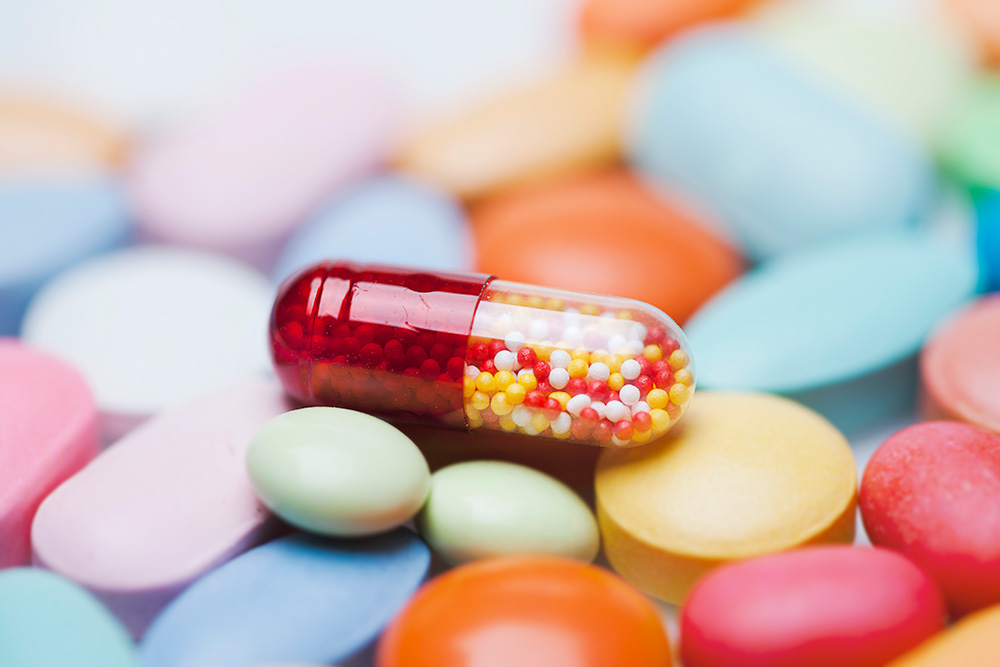Long-lasting Marks from Facemasks?
Facemasks, which are a must-have in the era of COVID-19, can be uncomfortable and suffocating to wear and even cause skin problems for some. They even leave behind marks in the skin, which tend to last longer for some. If this is the case for you, you might be surprised to find out that it could be a sign of skin aging. Marks from facemasks will not fade away as easily if the skin has lost its resilience due to a reduce level in collagen, which is responsible for maintaining skin elasticity and moisture. Let’s learn more about collagen based on the information provided by the National Health Insurance Service (NHIS).
Collagen, an anti-aging protein found all over the body
Collagen has become synonymous with “anti-aging.” These days, you will often hear people eating pork rind because “it is rich in collagen, which is good for the skin.” Collagen has become a popular ingredient to add to health food products in the United States and is causing a sensation around the world.
Collagen is a protein that is found in nearly every part of the body, including the skin, blood vessels, bones, muscles and connective tissues. Fingernails, toenails, hair and even cell membranes contain this structural protein, which fills the empty spaces among cells. Perhaps this is why one of the characteristics of collagen that people think of first when it comes to collagen is “supple.”
Collagen is known to be essential in moisture retention and firmness of the skin. It cannot be discussed apart from aging because as it declines with age, it can reduce skin elasticity and impede muscle formation. It especially has a major impact on cartilages. A sudden collagen loss, for example, can lead cartilage damage and increased joint pain. What may be alarming is that the body synthesizes less and less collagen over the years after reaching adulthood.
The effects of reduced collagen production are most pronounced in the skin. This is because collagen makes up more than 70% of the dermis. Collagen is known to prevent dryness, reduced elasticity and wrinkle formation. If your hair feels dry and brittle or your nails become weak and more vulnerable to breakage, it is a sign that your body is not producing enough collagen. So, you could say that collagen is an essential component of our body from head to toe. In recent years, a wide range of products containing collagen, from those that are applied to the skin to collagen supplements, has been released in the market to meet the growing demand. It has also become a trend to eat collagen-rich food, which is believed to help boost collagen levels in the body.
Some of the collagen-rich foods that are popular in Korea are pork rind and spicy chicken feet. They are easily recognized as collagen-rich food because they are bouncy to the touch and chewy. Broths made by boiling beef bones for hours are also known to have high collagen content. But the thing is, collagen from animals is too large to be absorbed by the digestive system and gets excreted out of the body. Another important thing to note here is that ingesting collagen alone makes it less likely to be absorbed, and in order to increase the absorption rate, it should be consumed with vitamins A and C and an antioxidant agent. Because it is a protein, collagen itself does not cause any major side effects, but it should not be consumed in excess. Collagen products in a pill form or a powder type tend to have high collagen content and generally require more caution than regular food. Excessive intake of collagen supplements can lead to constipation and indigestion, and those with seafood allergies should speak with a doctor before trying marine collagen.
Source: Geongang Cheonsa (Health Angel), a blog run by the NHIS
“The blog posts of the National Health Insurance Service (NHIS) are aimed at promoting public health, and they are copyrighted works that cannot be used for commercial purposes, etc.”





 Specialized Medical Service
Specialized Medical Service
 Medical Technology
Medical Technology
 Health & Wellness
Health & Wellness
 City & Culture
City & Culture
 Hot Issue
Hot Issue
 Interview With
Interview With
 Medical Technology
Medical Technology
 City & Culture
City & Culture
 Food & Travel
Food & Travel
 Health & Wellness Tips
Health & Wellness Tips
 Hot Issue
Hot Issue